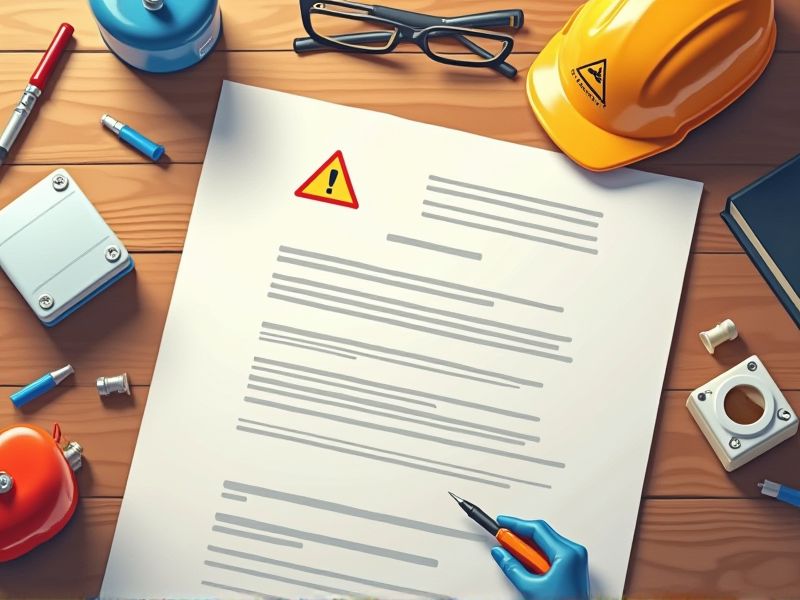
The transportation of hazardous materials involves significant risks that require strict regulatory compliance and expert handling to prevent accidents and environmental damage. Specialized certifications validate a professional's knowledge of safety protocols and legal requirements, ensuring that they possess the skills necessary to manage such high-risk activities. Enforcing certification requirements helps harmonize safety standards across the industry, reducing the likelihood of incidents and promoting public safety. Important certifications you may need as a Hazardous Materials Transportation Specialist include those recognized by key regulatory bodies.
DOT Hazardous Materials Transportation Certification
Hazardous materials pose potential risks during transport, necessitating strict regulatory oversight to prevent accidents and ensure public safety. DOT Hazardous Materials Transportation Certification equips specialists with the essential knowledge to comply with federal regulations and handle hazardous materials safely. Non-compliance can result in severe penalties, making certification vital for legal and financial protection. Proper training reduces the likelihood of incidents, thereby enhancing the safe delivery of hazardous materials.
Hazardous Materials Endorsement (CDL)
A Hazardous Materials Endorsement (CDL) is needed to ensure that a transportation specialist is adequately trained to handle and transport dangerous goods safely. This endorsement signifies compliance with federal regulations, reducing the risk of incidents during transit. It verifies that the specialist has demonstrated knowledge in recognizing hazardous materials, understanding safety protocols, and responding to emergencies. Possessing this endorsement enhances the specialist's credibility and employability in the logistics and transportation industry.
OSHA HAZWOPER Certification
OSHA HAZWOPER Certification is crucial for hazardous materials transportation specialists because it ensures they understand proper handling and emergency response to chemical spills. The certification process covers necessary safety protocols which reduce the risk of accidents and exposure during transportation. Compliance with OSHA regulations not only protects the safety of employees but also minimizes legal liabilities for companies. Employers demand this certification to demonstrate proficiency in navigating hazardous material incidents effectively.
IATA Dangerous Goods Regulations Certification
IATA Dangerous Goods Regulations Certification ensures that hazardous materials transportation specialists understand global safety standards for air transport. Compliance with these regulations minimizes risks of accidents and incidents caused by improper handling of dangerous goods. Airlines and regulatory authorities require certified specialists to ensure adherence to international laws governing dangerous goods. Proper certification enhances a specialist's credibility and efficiency in the logistics and transportation sectors.
IMDG Code Certification
IMDG Code Certification ensures safe transportation of hazardous materials by ensuring specialists are knowledgeable about international regulations. Proper certification reduces the risk of accidents and environmental damage during transit. Compliance with the IMDG Code is often a legal requirement for shipping dangerous goods by sea. Certification enhances the credibility and reliability of transportation specialists involved in global logistics.
Certified Hazardous Materials Manager (CHMM)
Certified Hazardous Materials Managers (CHMMs) bring essential expertise, ensuring that hazardous materials are handled and transported in compliance with stringent regulations, reducing the risk of accidents and penalties. Their comprehensive understanding of hazardous materials helps in developing and implementing effective transport strategies, minimizing potential environmental and health impacts. CHMMs enhance safety protocols during transportation, leading to reduced incidents and operational downtime. Their specialized skills facilitate better decision-making, optimizing logistics and improving overall efficiency in hazardous materials transportation.
EPA Hazardous Waste Operations Certification
The EPA Hazardous Waste Operations Certification ensures that transportation specialists have essential training to handle hazardous materials safely, minimizing potential environmental harm. Certification confirms that specialists understand and comply with federal regulations, reducing legal liabilities for themselves and their employers. Possessing this certification highlights their competency in managing emergency situations effectively, ensuring human safety and environmental protection. This credential differentiates professionals in a competitive job market, increasing employment opportunities within the field of hazardous materials transportation.
NFPA 472 Certification
The NFPA 472 Certification is essential because it establishes a recognized standard for the competence of hazardous materials responders. This certification ensures that specialists have the necessary knowledge and skills to minimize risks and respond effectively to hazardous situations. Compliance with NFPA 472 can lead to enhanced safety measures, reducing the likelihood of accidents during transportation. Organizations and regulatory bodies often require this certification to ensure that personnel handling hazardous materials meet industry standards for public and environmental safety.
Transportation Worker Identification Credential (TWIC)
The Transportation Worker Identification Credential (TWIC) is required for hazardous materials transportation specialists to enhance security measures in sensitive areas. Access control to secure facilities and vessels is strengthened, preventing unauthorized individuals from entering. TWIC ensures that personnel with access to hazardous materials meet strict background checks, reducing potential security threats. Compliance with federal regulations is achieved, aligning with national transportation security goals.
Emergency Response Planning (EPCRA) Training Certification
EPCRA Training Certification equips hazardous materials transportation specialists with necessary knowledge to comply with federal regulations. This certification identifies risks and ensures systematic emergency planning, which reduces potential incidents during transportation. Without adequate training, specialists might mishandle materials, leading to severe environmental and public health consequences. The certification fosters collaboration with local governments and communities, enhancing overall safety protocols.
Summary
When you obtain certifications as a Hazardous Materials Transportation Specialist, you can enhance your expertise and credibility in handling and transporting hazardous materials safely. This often leads to better job opportunities and potentially higher salaries, as employers value certified professionals. Certification can also reduce workplace incidents and increase compliance with regulatory standards, minimizing legal liabilities for companies. These factors contribute to improved safety and efficiency within transportation operations.
